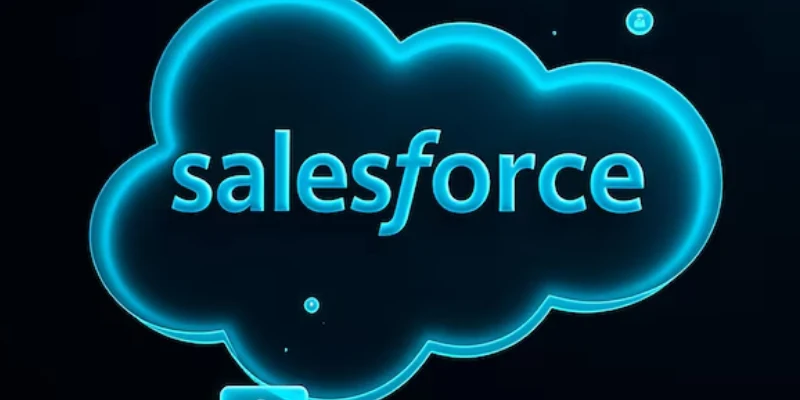Customer Relationship Management (CRM) is undergoing a seismic shift. In the past, CRM mainly focused on maintaining contact information and tracking sales pipelines, but today’s systems are expected to predict customer needs, automate repetitive tasks, and provide real-time insights. Joining a Salesforce Course in Kanchipuram at FITA Academy helps professionals understand how artificial intelligence (AI) is driving this transformation, as Salesforce has evolved from a CRM platform into a fully AI-first ecosystem. This demonstrates how AI is revolutionizing the way businesses engage with their customers.
From Data Management to Intelligent Engagement
CRM in its younger years was data organization- track the leads, record the calls and produce real reports. AI has changed that paradigm..
- Predictive analytics now anticipate customer behavior.
- Natural language processing (NLP) powers chatbots that handle routine service tasks.
- Machine learning enables real-time personalization across marketing, sales, and service touchpoints.
The Einstein AI Platform: Salesforce’s Flagship AI Engine
- Automated Predictions: Einstein allows users to score leads, forecast sales, and recommend next-best actions with minimal setup.
- Intelligent Automation: Einstein Bots respond to customer inquiries, freeing service teams for more complex tasks.
- Embedded AI: Crucially, Einstein is native to the Salesforce platform, so companies do not need separate AI tools or data science teams to deploy it.
Data: The Fuel for AI-Powered CRM
The data it processes is only as good as AI. The strength of Salesforce lies in its power to consolidate customer data that is collected across different channels such as e-mail, social networking sites, e-commerce activities, and internet of things equipment into a single platform at Salesforce Course in Chandigarh
- Customer 360: This initiative stitches together data across Salesforce applications and third-party systems.
- Data Cloud (formerly Customer Data Platform): A real-time data platform enabling instant segmentation and activation for personalized engagement.
Industry-Specific AI Solutions
Salesforce recognizes that different industries have distinct needs. The company has rolled out tailored AI capabilities for sectors like:
- Healthcare: Predicting patient needs and automating care coordination.
- Financial Services: Identifying fraud patterns and optimizing client investment strategies.
- Retail: Personalizing product recommendations and pricing strategies this industry-specific approach allows businesses to implement AI with minimal customization while meeting compliance requirements.
Integration with the Broader AI Ecosystem
Salesforce understands that companies use a variety of AI tools. It offers:
- Open APIs and AppExchange integrations with AI partners like AWS, Google Cloud, and Snowflake.
- MuleSoft for seamless data connectivity across legacy and modern systems.
AI Ethics and Responsible CRM
With great power comes great responsibility. Salesforce has been vocal about ethical AI practices:
- Transparency: Clear explanations of AI-driven recommendations.
- Fairness: Efforts to reduce bias in machine-learning models.
- Security and Privacy: Compliance with GDPR, CCPA, and other global data protection standards.
Empowering the Workforce: AI for Human Productivity
Contrary to fears of automation replacing jobs, Salesforce positions AI as a productivity enhancer, making it an essential skill to learn in a Salesforce Course in Dindigul.
- Sales teams use Einstein to prioritize leads
- Service agents leverage AI to resolve cases faster.
- Marketers deploy predictive insights for more effective campaigns.
Competitive Landscape and Differentiation
- A mature ecosystem of apps and developers.
- Industry-specific AI solutions.
- Continuous innovation through acquisitions like Tableau (analytics) and Slack (collaboration).
Challenges in AI-First CRM Adoption
Despite the promise, AI adoption faces obstacles:
- Data Silos: Organizations struggle to integrate fragmented data.
- Change Management: Employees may resist AI-driven processes.
- Cost and Complexity: Smaller businesses may find advanced AI features expensive.
The Future: Predictive, Prescriptive, and Autonomous CRM
Salesforce envisions a future where CRM systems don’t just predict outcomes but prescribe actions and even autonomously execute tasks.
- Real-time IoT data will feed AI models for instant customer engagement.
- Generative AI will produce hyper-personalized campaigns at scale.
- Autonomous agents will manage routine workflows, freeing humans for strategic initiatives.
Also check : How Salesforce can improve your business

